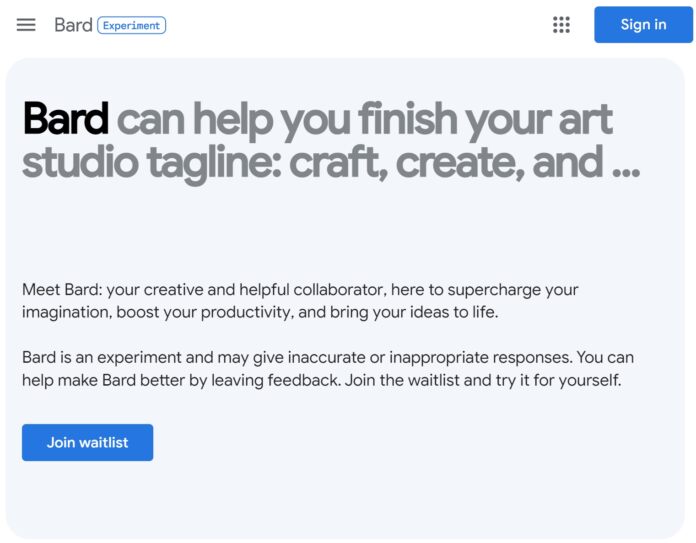Google´s recently launched Bard-Chatbot has raised some controversy among content creators, who claim that the chatbot does not properly cite or link to the sources of its information.
According to Google, Bard tries to avoid linking too often because it can disrupt the natural flow of the conversation and make it seem less human-like. Instead, Bard tends to paraphrase or summarize the information it finds online.
Criticism from Content Creators
This decision has been criticized by some webmasters and journalists, who argue that Bard is violating their intellectual property rights and depriving them of traffic and exposure.
Renowned SEO expert Barry Schwartz says he was “shocked”, and “did not think Google would launch Bard without citing and linking to sources as much as and as well as Bing Chat does”.
Google has responded to these complaints by saying that Bard is still an experimental service and that they are working on improving its accuracy and reliability. They also said that they are exploring ways to provide more transparency and attribution for the sources of Bard’s information without compromising its conversational style.
Google Argues That Bard Generates Original Content
The company has updated its Bard FAQs to explain that the chatbot will likely show citations when Bard “directly quotes at length from a webpage”. In other cases Bard would not cite because Bard “generates original content” and does “not replicate existing content at length”. Here the relevant part of the updated FAQ:
“Bard, like some other standalone LLM experiences, is intended to generate original content and not replicate existing content at length. We’ve designed our systems to limit the chances of this occurring, and we will continue to improve how these systems function. If Bard does directly quote at length from a webpage, it cites that page. Bard was built to be a creative and helpful collaborator—it works well in creative tasks like helping you write an email or brainstorm ideas for a birthday party. We see it as a complementary experience to Google Search. That’s why we added the “Google It” button to Bard, so people can easily move from Bard to explore information from across the web. Bard is an experiment, and we’ll use its launch as an opportunity to learn, iterate, and improve the experience as we get feedback from a range of stakeholders including people like you, publishers, creators, and more.”
Chatbots and AI Content Endanger Content Creators
Google´s loose stance how to treat AI generated content is also reflected in how the company evaluates search engine rankings. The company said in February that it currently has no intention of banning AI content from its search engine and that it will treat AI generated content like any other content.
Google Bard´s generative AI technology is directly competing with ChatGPT, developed by OpenAI, and Bing Chat from Microsoft. ChatGPT uses GPT-3.5 (and GPT-4 for paid subscribes), a large-scale language model that can generate coherent texts on various topics. Bing Chat has been built upon GPT-4.
According to Mikhail Parakhin, the current CEO of Bing at Microsoft and former CTO at Yandex, Google Bard is “pretty far behind” compared to Bing Chat. Parakhin wrote on Twitter when asked about his impressions of the Bard launch, that Google is “pretty far behind” as they have a “low amount of compute” and their machine learning algorithm “are trailing” what Microsoft uses by about six months.
Tip of the day: When using your Windows 10 laptop or convertible with a mobile hotspot you might want to limit the Internet bandwidth your PC uses. In our tutorial we are showing you how to set up a metered connection in Windows 11 or Windows 10 and how to turn it off again, if needed.





